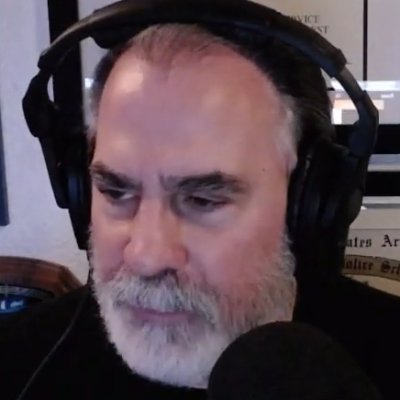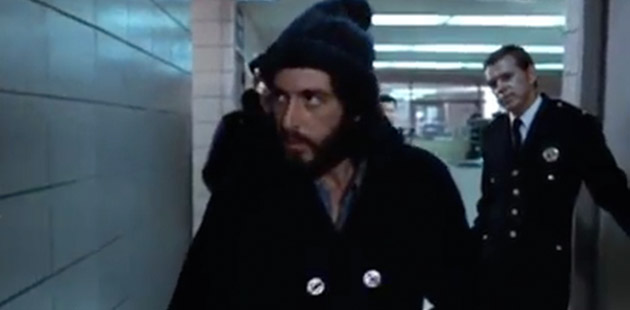Serpico sets the record straight, Part 3
Editor’s Note: Read the complete series on New York’s finest Frank Serpico under Special Reports.
Never run when you’re right
When I was a teenager shining shoes, this came out in the documentary. I was shining shoes in my father’s store. This cop walks in, I give him the best shine I ever gave anybody. To shine the shoes of the law, to me was a privilege. The bastard got up and walked out without paying me. He demeaned the uniform that he was wearing. The next week when my father saw him coming, and I wish you would put this in your story because they left this out of the documentary. So, the following week, my father used to work in the window fixing shoes, and he said here comes that piece of crap again. My father walked around the counter and greeted him as he walked in the door. He said, good morning officer, you want a shine? The cop said, yeah. My father put out his hand and said, ten cents, pay first. He turned around and walked out. We never saw him again.
And the piece of crap as my father said, wearing a cop’s uniform. The uniform wasn’t a piece of crap, but the man wearing it was. My father always said, you question authority when it’s wrong. That’s where I got my learning from.
My father was a prisoner of war during World War I. He knew what suffering was about. He wasn’t afraid of any man. He said to me, son, never run when you’re right. He told me when he was a kid, these kids were teasing this guy and they ran away. My father didn’t run and the guy beat him up, and said why didn’t you run. My father said because I didn’t do anything. The guy said, yeah well, you’re the guy that got caught. The next day, my father was an apprentice in a shoe shop, he went and got a knife that he used for cutting leather and he said, the next day I waited for him and I evened up the score. My father said never run when you’re right, you’ll always have your day.

We want ours
My brother Pasquale had a bodega, I think it was at 724 Franklin Avenue. My brother is a WWII veteran, the quietest guy you would ever want to meet, like most other vets. He just wanted to be left alone. He’s running his little bodega and cops come around every Sunday and shake him down. For you know how much Doug? Two dollars. Every Sunday they’d come around, and this happened in every precinct. They would collect two-dollars from the ma and pa convenience stores, the little grocery stores at the time. They had what was called blue laws. You could only sell perishable goods, like milk and bread. You couldn’t sell canned foods, cigarettes and beer.
These cops would come in, and help themselves to beer, cigarettes, sandwiches including the two-dollars. So, my brother comes home, big long face. Pat, what’s the matter? Pat come on, what’s the matter? He says, ah cops, they come around, Sundays, they want two-dollars and if I don’t give it to them they’re going to give me a ticket. So, me, not asking for any extra favors, I said did you tell them, I figured they would be too damn ashamed to shake down the brother of another cop. Well, he comes home next Sunday, long face, I got another ticket, he said. Did you tell them your brother was a cop? Yeah. Cop or no cop you pay like everybody else. I thought, those numb nuts.
I was living in Greenwich Village. I used to do a lot of biking, I had a ten-speed racer. I volunteered off duty with the American Youth Hostel. I took my tape recorder, threw it in my backpack, got on my bike, rode over the Brooklyn Bridge to the 80th Precinct. That’s where my brother’s store was. I get on the call box and asked the switchboard operator to send the sector car to meet me in the parking lot of the local factory. It’s Sunday afternoon, the sector car pulled up. I leaned on the driver’s side, I’m sitting on my bike, I already turned on my recorder. What’s your problem, they say? I told them about my brother. They said, we told him, when we come in there you don’t say can I help you, you know what where here for. You come to the back and give us the money, and you don’t do it in front of kids. They asked where I worked. I told them over in the 7th Division. The 7th Division was notorious, the whole damn police department knew it was the most corrupt big money operation. Ah well they said, you’re getting yours and we want ours. And I thought to myself, all right numb nuts, you will.
I called up Chief Sid Cooper. You bother me with this chicken shit, he said. I said yeah chicken shit, they’re shaking down every store in the city, it’s no chicken shit. All right, all right, he said.
So, they wired up the store. Well it was amazing. The cops go in there and something was wrong with the wire. This wasn’t the first time I was told that this had happened. I said well great, no problem, I have my own recording and I will bring you a copy. They were suspended. Now what do you think the word is around the precinct and the department? That freaking Serpico, for a lousy two-dollars these cops lost their job. Wait a minute, how about putting it this way. For a lousy two-dollars they shit on my uniform, does that sound better. And it’s not two-dollars, they got free beer, free cigarettes and free lunch and that adds up to big bucks.

Corruption is colorblind
When I was working in the 81st Precinct, I had a black sergeant, I had a couple of black sergeants. One of them was Ben Ward, who later became the police commissioner. Ward got his college degree on city time because he was in my class when he was supposed to be working, like many of the other NYPD brass that did the same thing. I didn’t trust either of them. They were ripping off their own people. So was my black partner when I was working in plainclothes. I was using reverse prejudice. I thought he’s black, he wouldn’t be screwing his own people. He was doing it worse. He had the in, he knew how to talk the jive, he knew what was happening.
I got assigned, out of the blue, to drive the sergeant. Serpico, you got the sergeant, I was told. I was waiting outside, I got the car and the car was running. The sergeant comes out, plops down in the seat and he says, where can I pick up fifty bucks in a hurry. That was my first drive with the sergeant. I said to him, excuse me. He says where can I make fifty bucks in a hurry. I said, do you have a bank account? Of course, that was the end of that. I never drove another sergeant. That sergeant, he retired as a chief. The prick, I didn’t know it, he became the head of plainclothes in the 6th Division. The 6th Division was as dirty as the 7th Division. There was an investigation going on. He got out nice and clean and that was that.
The Knapp Commission said it all. Unfortunately, it all slipped away.
Overtime was another scam that was going on. You got a bigger pension. They were milking the system with overtime. They make collars at the end of the tour, they make overtime pay and it goes on their record, how many hours you worked.
They turned the corner and started shooting
Before I went to plainclothes, I was working in the BCI, the Bureau of Criminal Identification. I got dumped from there because the inspector in charge didn’t like me. You know, this bathroom scene crap that was in the movie. So, I’m back in uniform. My captain, Captain Fink, calls me in and says Serpico, you got something on the ball, you were in BCI. My detectives, they can’t find their ass in a paper bag. A lot of those police and detectives back then didn’t know their ass from a hole in the ground.
Captain Fink said to me, catch me this burglar who’s cleaning out the precinct and I’ll put you in plainclothes. I said captain, don’t do me any favors. He said why. I said plainclothes, are you kidding, everybody knows it’s corrupt. He said nobody can make you do what you don’t want to do. And here is the “and” he tells me. There is a new department directive. Nobody goes into the Detective Division unless you put four years in plainclothes first. Whatever genius thought of that had to be a moron or one of the most corrupt.
They talk about the grass eaters and the meat eaters. Plainclothes were like the grass eaters, they graze, they call it clean money. It’s just prostitution and gambling. Not narcotics, we’ll never touch that. Those guys were making thousands, each guy, thousands of extra dollars a month. They would rent a yacht, have parties, apartments for their girlfriends, gifts, all kinds of crap. Suddenly, you get assigned to Narcotics and you’re going to become Mr. Clean. You’re dealing drugs, this is how it works.
When I went into Narcotics, I was just a lowly undercover cop. When I walked in, this boss said to me, listen Serpico, you don’t pull the shit you pulled up there. He was talking about the Bronx. He said that was chicken shit. Here [Narcotics] where talking about real money and with that you don’t fuck around. So that was my introduction into Narcotics.
Anyway, I made the burglary collar [arrest]. In fact, it was in the movie, but the movie screwed it up as usual. Al Pacino is kicking the guy, he’s a burglar. In real life, the burglar in question was white but the director, Sidney Lumet chose to make him black for some reason. Even Hollywood has profiling. He was a second story man, which makes him a top-grade burglar. These two officers turn the corner, they weren’t in uniform as they were in the movie, and they start shooting. So, I was on top of the perp when they started shooting. I never chased him like in the movie. He had a satchel, the guy came right into my arms as he was coming down the stairs because I was waiting for him.
The post had an elevated subway. I was in uniform so I took my coat and hat off, put it in the turnstile, a few feet away. When I came out, he’s gone. So, I go down in the street, on the way down I hear the burglar alarm and he runs right into my arms. I got him down, I got my gun drawn, pointed at his head. These two assholes turn the corner and bang, bang. Real nice.
The order came out for me to go to plainclothes school. These two numb nuts went right into the Detective Division on my collar. So, Doug, if that didn’t happen, I wouldn’t be talking to you right now. That was my fate.
Top photo is a screen shot from the YouTube trailer for the movie “Serpico” with Al Pacino

Doug authored over 135 articles on the October 1, 2017, Las Vegas Massacre, more than any other single journalist in the country. He investigates stories on corruption, law enforcement, and crime. Doug is a US Army Military Police Veteran, former police officer, deputy sheriff, and criminal investigator. Doug spent 20 years in the hotel/casino industry as an investigator and then as Director of Security and Surveillance. He also spent a short time with the US Dept. of Homeland Security, Transportation Security Administration. In 1986 Doug was awarded Criminal Investigator of the Year by the Loudoun County Sheriff’s Office in Virginia for his undercover work in narcotics enforcement. In 1991 and 1992 Doug testified in court that a sheriff’s office official and the county prosecutor withheld exculpatory evidence during the 1988 trial of a man accused of the attempted murder of his wife. Doug’s testimony led to a judge’s decision to order the release of the man from prison in 1992 and awarded him a new trial, in which he was later acquitted. As a result of Doug breaking the police “blue wall of silence,” he was fired by the county sheriff. His story was featured on Inside Edition, Current Affair and CBS News’ “Street Stories with Ed Bradley”. In 1992 after losing his job, at the request of the Federal Bureau of Investigation, Doug infiltrated a group of men who were plotting the kidnapping of a Dupont fortune heir and his wife. Doug has been a guest on national television and radio programs speaking on the stories he now writes as an investigative journalist. Catch Doug’s Podcast: @dougpoppa1

